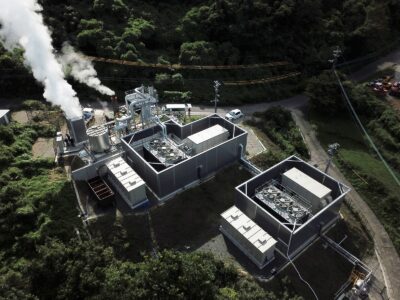Indonesia plans further incentives to boost investments in renewables
Indonesia plans further incentives and regulations to ensure growth of domestic renewable energy utilization and confirms thereby its commitment to boosting investments in the sector in the country.
“Through planned incentives to investors and regulations that ensure the growth of domestic renewable energy utilization, the Indonesian government wants to further commit to boosting investment in renewable energy in the country.” so senior government officials in local news.
The director general of new energy at the Energy and Mineral Resources Ministry, Maryam Ayuni, said Tuesday that the 2007 Energy Law mandated the government to offer incentives for the provision and utilization of renewable energy for a certain period of time.
“The 2010 Finance Ministry regulations on renewable energy incentives offer tax benefits for renewable energy investments, such as exemptions of value added tax, income tax, import duties, as well as tax holiday,” she said at the Green Investments Summit 2010 at the Grand Hyatt Hotel.
She added that a 2009 law on small- and medium-scale power generation using renewable energy also obliged state electricity monopoly PT PLN to purchase electricity from small- and medium-scale renewable energy power plants operated by cooperatives, communities or businesses.
“Our utilization of renewable energy is still less that of fossil fuel energy,” she told the summit. The ministry’s data shows the country’s total primary energy consumption in 2008 was dominated by oil with a 49.9 percent share. Coal followed with 31.8 percent and natural gas was third with 19 percent.
Hydropower and geothermal steam had a very small share of the energy consumption: 2.9 percent and 1.3 percent respectively.
A 2006 Presidential Decree on national energy policy stipulates that by 2025, the contribution of new renewable energy resources — geothermal steam, biofuel, liquified coal, hydropower, nuclear, wind and biomass — should make up 17 percent of the total primary energy utilization. Oil utilization is expected to drop to 30 percent, and gas and coal to increase to 30 percent and 33 percent respectively.
Hadiputranto, Hadinoto and Partners Indonesia legal consultant Luke Devine noted several obstacles in optimizing renewable energy investments in Indonesia. He cited geothermal resources, which were often located in high-conservation value forest areas.
“Under forestry regulations, restrictions are imposed on development in such forest areas,” he said.
The vice president of clean energy company Sindicatum Carbon Capital, Suryantoro Prakoso, said Indonesia should shift its policy focus from supply-side management, such as adding capacity, to demand-side management such as improving energy efficiency.”
Source: The Jakarta Post


















